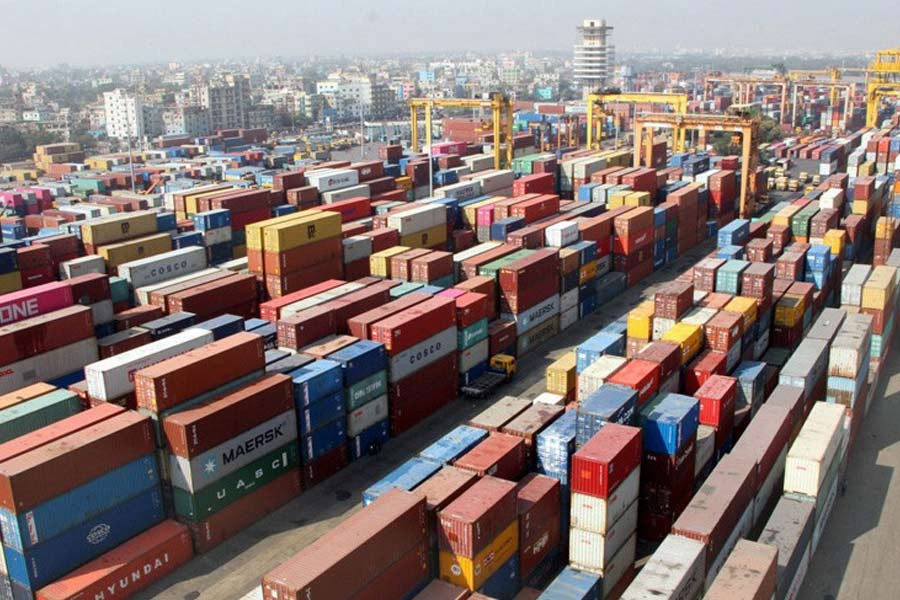
Published :
Updated :

As Bangladesh leaves the least developed countries (LDC) group in 2026 it would no more qualify for the LDC-specific duty-free and quota-free (DFQF) market access extended by the European Union and the United Kingdom.
Until now, Bangladesh exported 62 per cent of its apparels to the EU and the UK and almost 56 per cent of all exports. Losing these huge preferential trading benefits poses a risk for the competitive edge of Bangladesh's exports. So, the country needs to develop a well- defined strategy to overcome the situation.
In 2015, the EU introduced a preferential market scheme for the non-LDC Low-Income Countries (LICs) and Low-Middle-Income Countries (LMICs), called 'Special Incentive Arrangement for Sustainable Development and Good Governance', better known as GSP-plus.
Under this scheme, the EU offered zero duty market access up to 66 percent of tariff lines to developing countries. And out of 71 likely-eligible countries, only eight actually enjoy the GSP-plus benefits, Pakistan and Sri Lanka being the only South Asian countries.
The question is: whether or not Bangladesh is getting ready to access the EU's GSP-plus benefits.
More precisely, would Bangladesh automatically continue to enjoy Everything But Arms (EBA)-the special arrangement for LDCs, that provide duty-free, quota-free access for all products except arms and ammunition-till 2029.
But, the EU is advancing its new GSP-plus Policy to 2023, which might not make the continuation of Bangladesh in the EBA automatic.
Bangladesh needs to fulfill several requirements to access the revised scheme: as a beneficiary country has to satisfy the vulnerability criterion.
That is an exporting country's value of the top seven major products should be more than 75 per cent of its total GSP-covered exports or 'vulnerable economy'.
With Bangladesh's 96 per cent of exports to the EU falling in that category, it should be eligible for the scheme.
The other eligibility condition relates to the 'import share criterion', that is the exporting country's share in the EU's total import under the scheme should not cross 7.4 per cent. This limit has been imposed to curb the dominance of 'large suppliers' among the beneficiary countries.
But Bangladesh's apparel and other exports to the EU is 26 per cent. Therefore, Bangladesh will not be eligible for GSP-plus.
But the country can argue that its excessive dependence on apparel exports could be regarded as a sign of vulnerability to qualify for theGSP-plus regime.
Besides the technical issues, Bangladesh also needs to meet a complex and equally important issues of 'sustainable development' and 'good governance', collectively called the 'sustainability requirements'. It needs to meet the social and environmental factors.
The government and the industry and trade bodies need to provide credible data to prove the 'vulnerability criteria and 'import share criteria, to qualify for the GSP-plus regime.
Vietnam, the main competitor of Bangladesh in the global apparel market, and South Korea, having Free Trade Agreements with the EU-are relevant for Bangladesh.
The government and the industry need to develop a clear strategy to ensure clean energy, carbon neutrality, waste management, robust climate actions to meet the emerging EU Green Deal and economic framework.
jehangirh@yahoo.com


 For all latest news, follow The Financial Express Google News channel.
For all latest news, follow The Financial Express Google News channel.